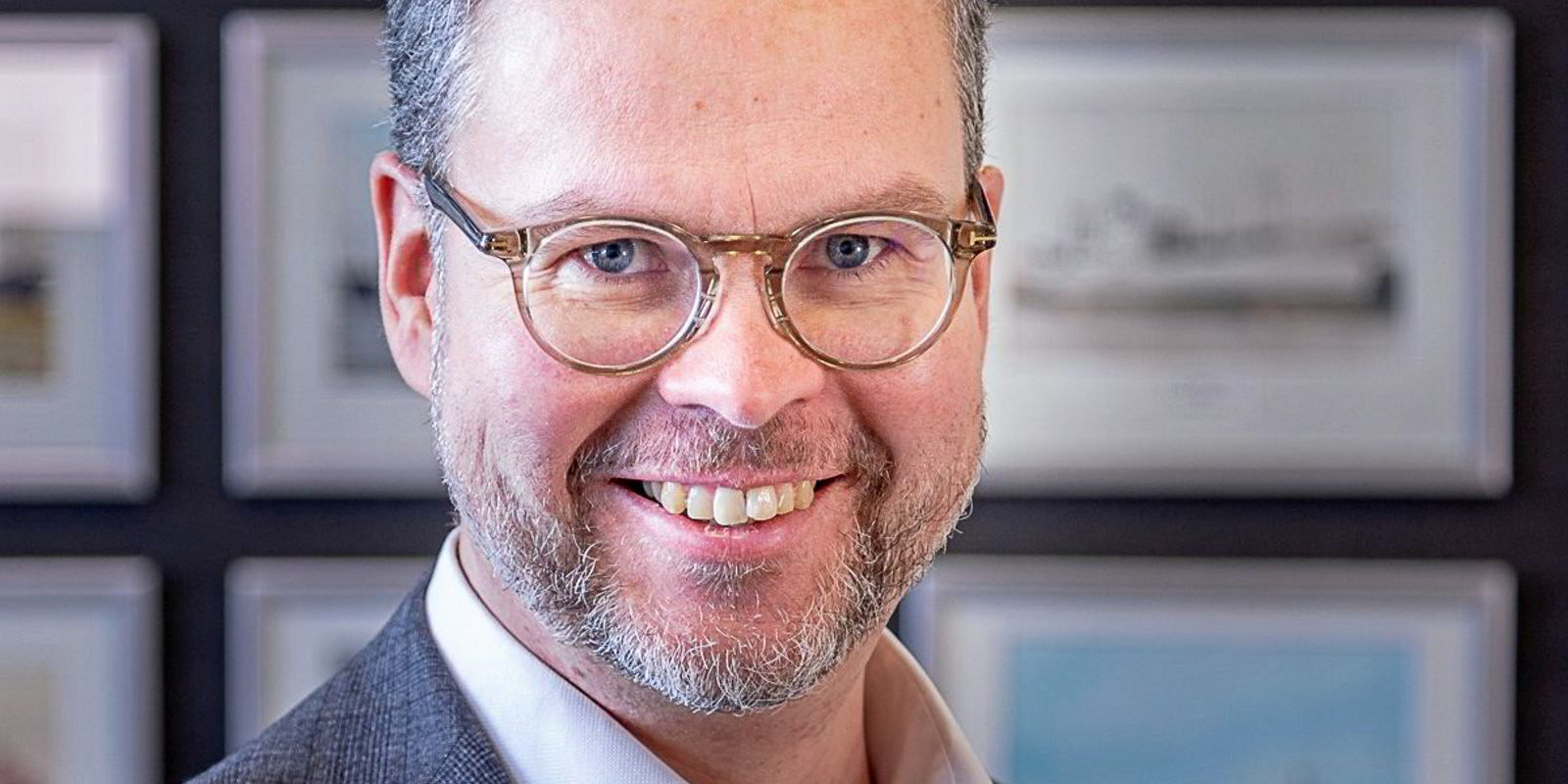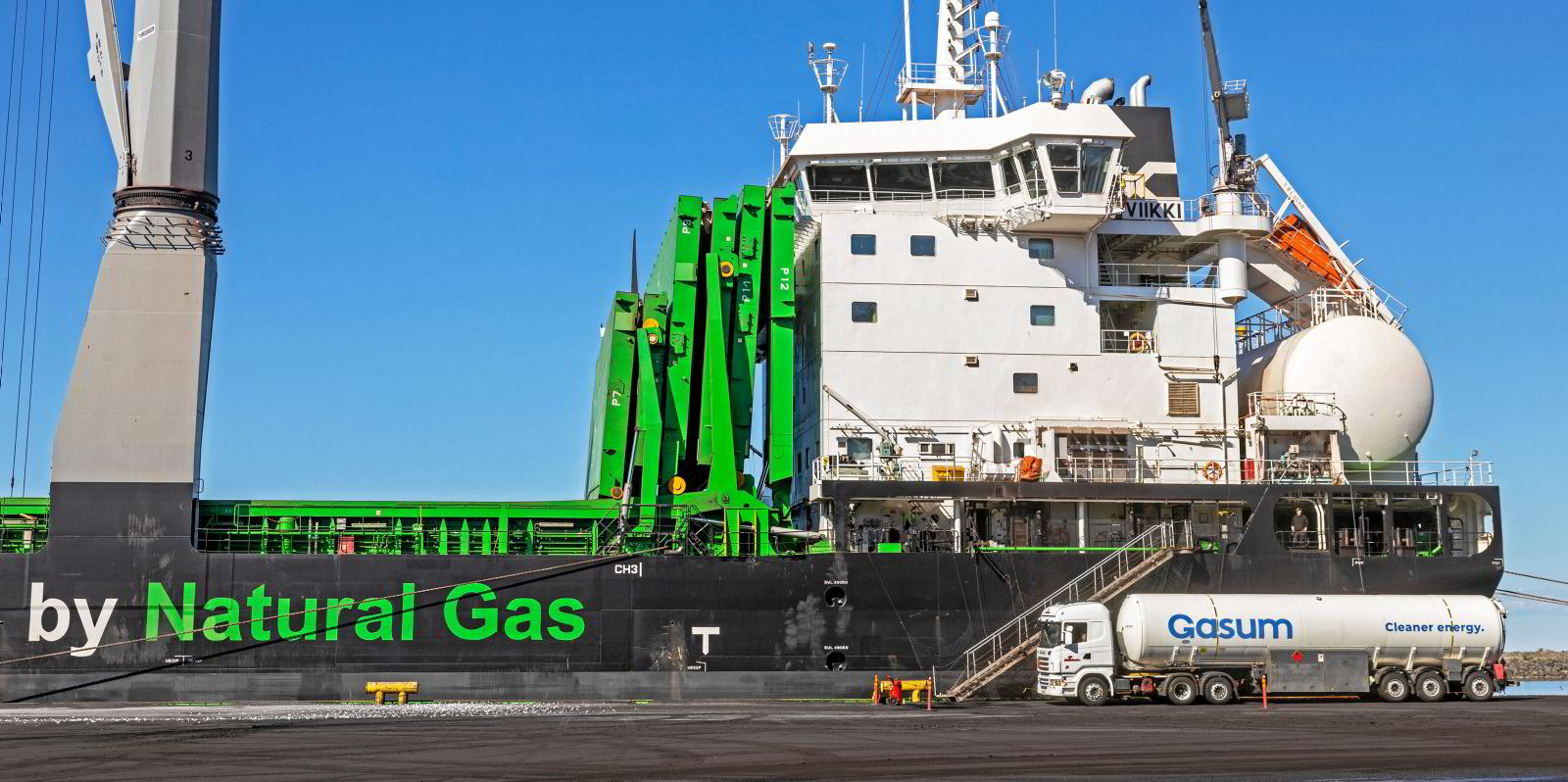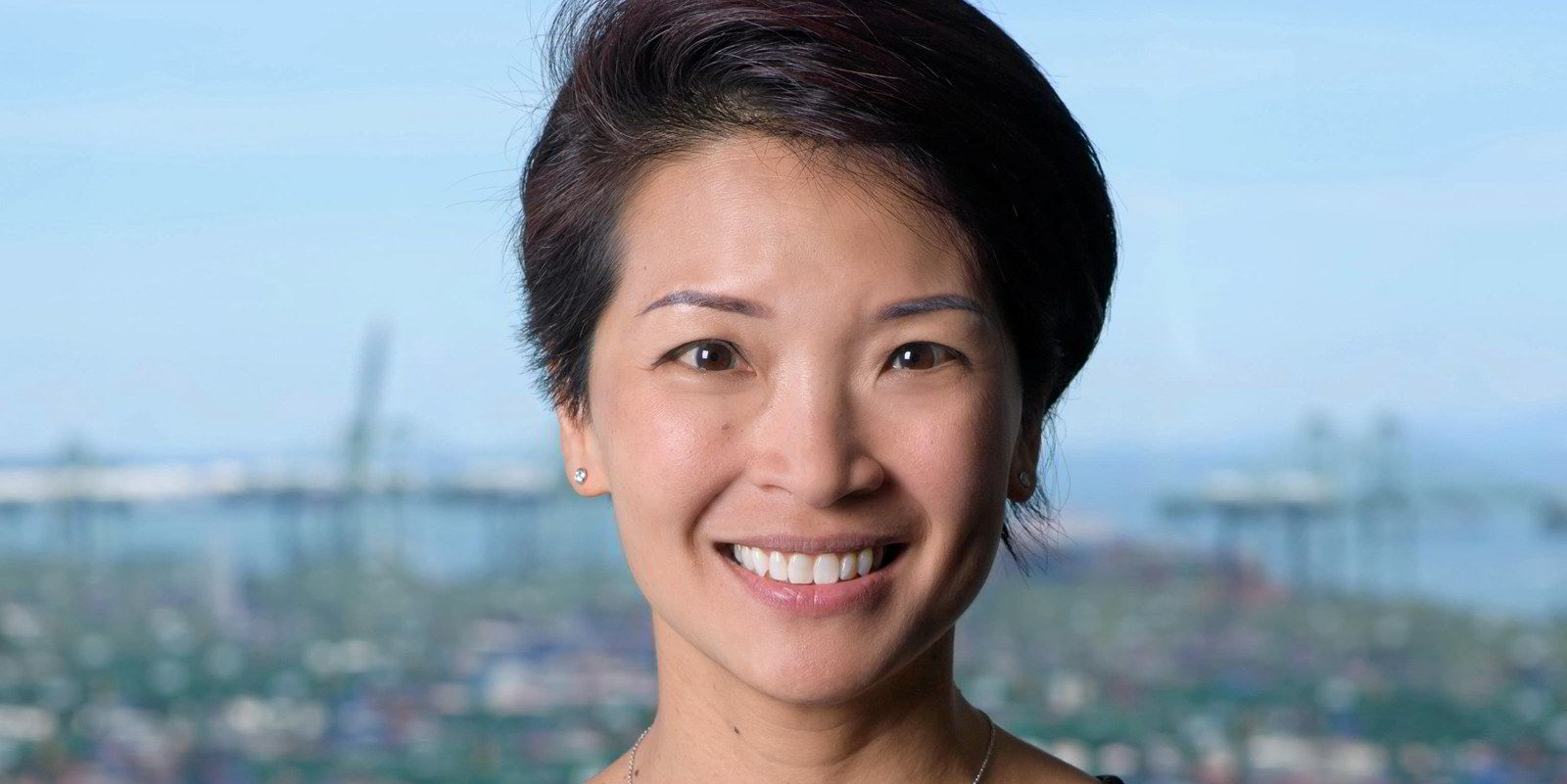ESL Shipping’s ambitious plan to order zero-emission handysize bulkers is dependent on the availability of green fuel, according to managing director Mikki Koskinen.
The Finnish bulker company has announced its intention to bring in a pool of investors to order eco vessels, while exiting the supramax sector.
Koskinen told TradeWinds: “We are planning for the future.”
He said the company is quite advanced on technical work for the next generation of handysizes and coastal dry cargo vessels.
And he added: “We are testing the market for pooling investments with local investors and family offices. We don’t yet know how the structure will work for the next wave of newbuildings.”
Koskinen explained that is for parent conglomerate Aspo to decide.
The Helsinki-listed group is looking for “suitable stable partners”, said the managing director.
The financing model will be similar to that used for the order of 12 electric bulkers of 5,350 dwt each at Chowgule Shipyard in India.
Investors have bought half of this fleet, which will be managed by ESL’s Swedish unit AtoB@C.
Ammonia and methanol are the two options being looked at for fuelling the bigger ship classes, Koskinen said.
Time and resources

He did not put a number on the vessels needed, or the costs involved.
But ESL has devoted time and resources to establishing a fuel supply chain, the boss said.
Koskinen added that the company will soon decide which one, or possibly both, of the fuel options will be picked by the group.
This is “totally dependent” on the supply chain for new fuels, he added.
“At the moment, there is not one single kilo available, and there needs to be,” Koskinen said.
As part of the fleet optimisation, the sale of its biggest ships has been mooted.
Funds to be raised
The 56,000-dwt supramaxes Arkadia and Kumpula (both built 2012) are worth between $17m and $18m each, according to VesselsValue.
This move is being “investigated”, Koskinen said. “They are not core vessels and a two-ship fleet is not optimum,” the boss explained.
Last year, the owner set up a new long-term pool called GreenCoaster for energy-efficient electric hybrid vessels, together with a group of investors consisting of institutional and private interests.
The ESL fleet now stands at 41 vessels, 23 of which are wholly owned and make up 80% of the 425,000-dwt fleet capacity.
Two more are minority-owned, and there are 16 ships chartered in.




